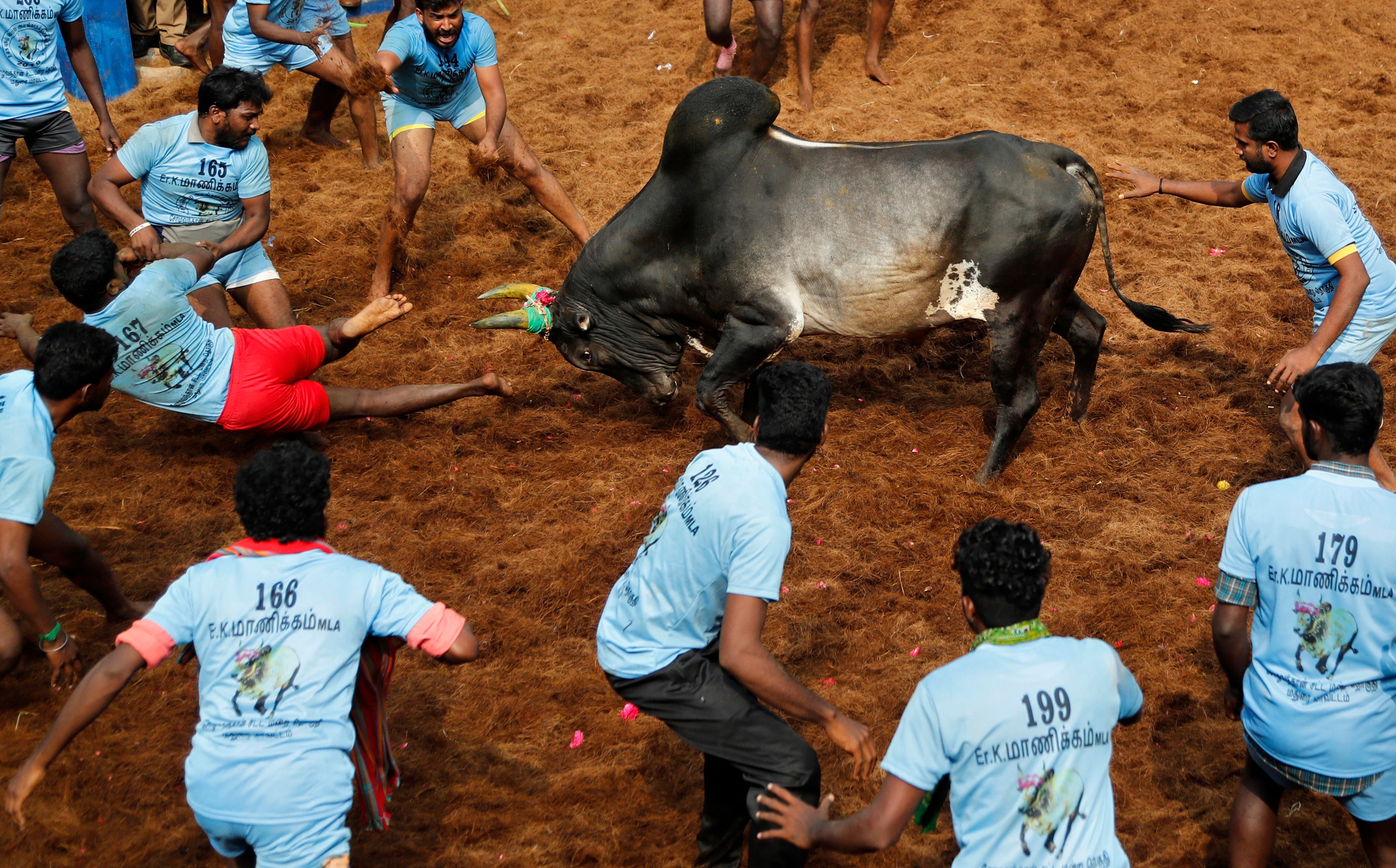India’s top court allows bull-taming sport to continue despite criticism from animal rights groups
India’s top court has ruled to allow the continuation of the bull-taming sport of jallikattu, which is celebrated as cultural heritage in the southern state of Tamil Nadu but criticized by animals rights groups

India’s top court on Thursday ruled to allow the continuation of the bull-taming sport of jallikattu, which is celebrated as cultural heritage in the southern state of Tamil Nadu but criticized by animals rights groups.
Five justices held that the state government was taking sufficient steps to reduce the pain and suffering of the animals, and ruled the sport and other bull races in the country could continue.
Animal rights organizations had filed court petitions saying jallikattu is a bloodsport and dangerous, with the bulls often attacking their riders and bystanders as they try to escape crowded areas.
The sport, which dates back centuries, is extremely popular in Tamil Nadu during the four-day Pongal harvest festival in January in which hundreds of bull vaulters compete in a carnival-like festival.
As drums beat and the crowd cheers, a man leaps onto the back of a large bull and hangs on tightly to its hump as the animal bucks and jumps. If he can hold on for three jumps or 30 seconds, or for a distance of 15 meters (49 feet), he has a chance to win prizes such as cooking pots, clothes, bicycles, motorbikes or even cars.
Poorvi Joshipura, a spokesperson for PETA India, said the court verdict "makes our country look regressive in the eyes of the world."
People for the Ethical Treatment of Animals, a global animal rights organization, was a complainant in India’s top court demanding a stop to the sport in the country.
Joshipura said the court order came despite people and animals dying and sustaining injuries.
"Since 2017, at least 104 men and children and 33 bulls have died. More deaths will occur," she said, adding that other countries have been moving to ban such sports.
The Supreme Court in 2014 had held that jallikattu violated the rights of the animals and the Prevention of Cruelty Act.
Two years later, the federal government carved out an exception for jallikattu and bullock cart races from the scope of the PCA. Animal rights organizations then challenged the move in the Supreme Court.
Later, the Tamil Nadu state government also enacted a law saying it was taking steps to prevent cruelty to the animals, paving the way for jallikattu to continue.
On Thursday, the top court upheld the federal and state governments' actions.
Bookmark popover
Removed from bookmarks